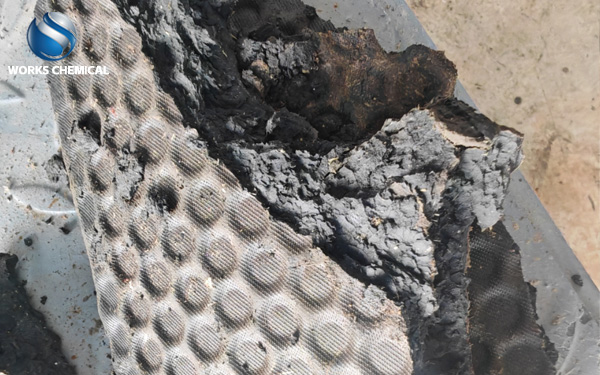
To solve the problem of plate and frame mud dewatering and achieve deep dewatering of sludge, it is necessary to comprehensively consider and implement measures from many aspects. Here are some specific solutions:

First, optimize the operating parameters
Increasing pressure: In the filtration process, pressure is one of the key factors affecting the dehydration effect. Under normal circumstances, the greater the pressure, the better the sludge dehydration effect. Therefore, under the premise of ensuring the safe operation of the equipment, the press pressure can be appropriately increased to improve the dehydration efficiency.
Adjust the filtration time: The choice of filtration time is also very important. Too long or too short filtration time may lead to unsatisfactory dehydration effect. It is necessary to determine the best filtration time according to the nature of the sludge, the performance of the filter press and the production needs.
Increasing the sludge temperature: appropriately increasing the sludge temperature helps to reduce the viscosity of the sludge, thereby improving the dehydration effect. However, it should be noted that too high a temperature may damage the filter press or affect the subsequent treatment of the sludge.
Two, sludge conditioning
Use of sludge conditioner: sludge conditioner is a chemical agent that can change the surface structure of the sludge and reduce the surface load of the sludge solid. The use of sludge conditioner can effectively improve the dewatering performance of sludge and reduce the moisture content of sludge. In the selection of sludge conditioner, it is necessary to comprehensively consider the nature of sludge, treatment scale and cost.
Adjust the dosage of the agent: The dosage of the agent has a great influence on the sludge conditioning effect. Too little dosage may not achieve the desired conditioning effect, while too much dosage may increase the processing cost and may cause corrosion to the equipment. Therefore, it is necessary to adjust the dosage of the drug according to the actual situation.
Three, optimize the filtration process
Use of pre-compression and gradual pressure: Pre-compression can initially discharge the free water in the sludge, laying the foundation for the subsequent high-pressure press. Gradually increasing the pressure can avoid the damage of the filter press under excessive pressure in an instant, and it is also conducive to improving the efficiency of dehydration.
Reasonable setting of filter cloth and filter plate: the setting of filter cloth and filter plate also has a great impact on the dehydration effect. It is necessary to select suitable filter cloth material and specifications, and reasonably set the arrangement of filter plates to improve dehydration efficiency and filter cake quality.
Regular cleaning and replacement of filter cloth: filter cloth is easy to clog and wear during use, and needs to be cleaned and replaced regularly to maintain its good filtration performance. High pressure water gun or chemical cleaning agent can be used for cleaning; When replacing, it is necessary to replace the filter cloth in time according to the wear condition and service life.
Iv. Other auxiliary measures
Mechanical concentration equipment: mechanical concentration equipment such as centrifugal dehydrator can be used to further remove the water in the sludge before the filter press, in order to reduce the burden of the filter press and improve the efficiency of dehydration.
Use of heat source for drying treatment: waste heat gas, steam and other heat sources can be used to dry the sludge, and the water in the sludge can be removed by heat. However, this method requires additional energy consumption and may have an impact on the subsequent treatment of sludge, so its economy and feasibility need to be considered comprehensively.
In summary, to solve the problem of plate and frame mud dewatering and achieve deep dewatering of sludge, it is necessary to start from many aspects, including optimization of operating parameters, sludge conditioning, optimization of press filtration process and other auxiliary measures. Through the integrated implementation of these measures, the dewatering efficiency and quality of sludge can be significantly improved, and the treatment cost and environmental risks can be reduced.